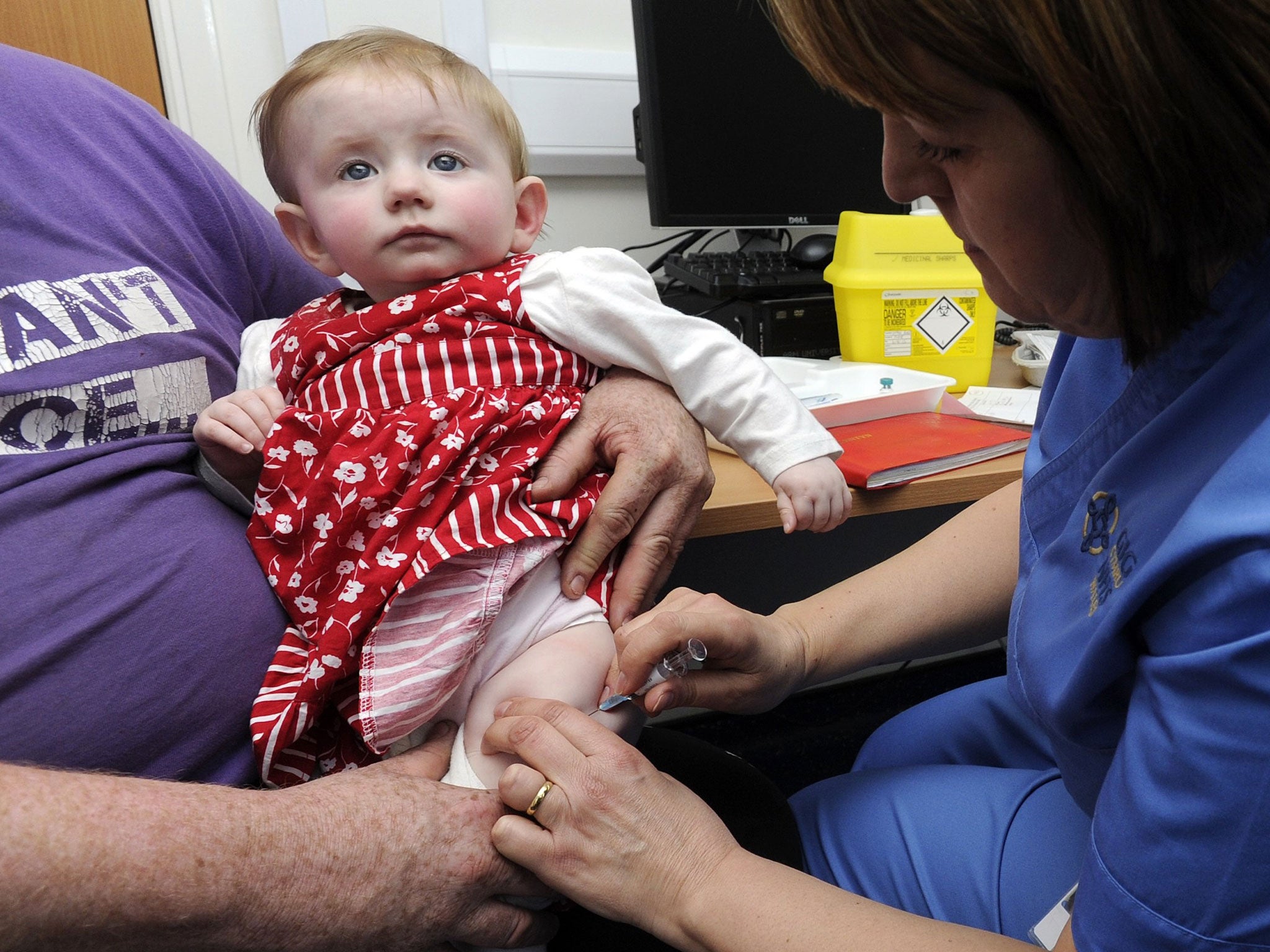Children who receive multiple vaccines are not at greater risk of infection, finds study
Experts warn evidence alone may not be enough to reassure parents with concerns about vaccinations

Being vaccinated against multiple diseases in one go or in the early years of a child’s life does not make a child any more vulnerable to illnesses, a new study debunking a major claim of vaccine sceptics has found.
A common fear among concerned parents, which is often spread by anti-vaccination campaigners, is that simultaneous vaccinations given too early and in too short a time span might “overload” their child’s immune system.
The sceptics claim this could make children more vulnerable to infections which aren’t directly protected against by their jabs.
The claim is one of the factors behind an estimated 15 per cent and rising of parents delaying jabs – leaving their child at risk of serious infections.
Vaccine fears stoked by discredited physician Dr Andrew Wakefield have also led to many children in the UK going unvaccinated and leading to a resurgence in Victorian-era diseases such as scarlet fever and outbreaks of measles.
The research follows recommendations which called for more research on the safety of the childhood immunisation programme in the US.
Because vaccines are tested separately and in combination, medical experts recognised patient’s concerns about the programme as a whole should be tested thoroughly.
The study gives more evidence to suggest concerns are unfounded, as it showed no variation in the risks of vaccinated children contracting infections which were unlinked to the vaccinations they had received.
Conducted by doctors and medical researchers in the US, the study sought to investigate the impacts of vaccinations given to children between birth and 23 months.
The number of jabs given to children in the US has increased from three jabs covering 10 diseases to 10 vaccinations for 14 diseases.
While the vaccines have been proven safe in multiple tests, anti-vaccination campaigners have seized on the increasingly crowded schedule to warn the jabs may be interacting in untested ways.
The authors said: “Some parents believe this increase in vaccine exposure is harmful to children, with specific concerns that early childhood immunisation ‘overloads’ the immune system and increases the risk for future infection.
“Based in part on this concern, an estimated 10 per cent to 15 per cent of parents are choosing delayed or alternative immunisation schedules for their children.”
Looking at data from children born across six hospitals, they identified 944 suitable children who were followed up on between the ages of 24 and 47 months.
Of these, 193 had an infection unrelated to their vaccinations, while 751 were without infections.
They then looked at the levels of vaccine “antigen” exposure each child had in their first two years of life, but found no statistically significant difference between the groups with and without infections.
Though the cases with non-vaccine linked infections had slightly more early child vaccine antigen exposure on average, this was only marginal and could be entirely down to chance.
“The present study provides further reassurance to parents that the US childhood vaccination schedule is safe in terms of not being associated with an increased risk of non–vaccine targeted infections”, said Dr Sean O’Leary, of the University of Colorado, and Dr Yvonne Maldonado, of Stanford University, in a linked editorial also published in the Journal of the American Medical Association.
However, they added that the study and the growing body of research commissioned after calls in 2013 to look directly at concerns of the anti-vaccination movement “may not satisfy” these groups.
They concluded that more in-depth conversations with parents and health professionals about vaccinations are needed to help identify any concerns and ensure they are supported to understand any risks of vaccination or delay.
Join our commenting forum
Join thought-provoking conversations, follow other Independent readers and see their replies
Comments
Bookmark popover
Removed from bookmarks